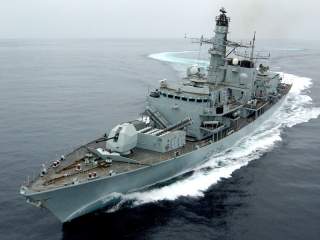So Much for Suez: What Britain's Tanker Crisis with Iran in the Gulf Really Means
In the Persian Gulf, Britain has been caught in a trap of its own making.
Such knowledge must be unsettling considering the impending problem of Sultan Qaboos’ succession. Lacking an heir, it is unclear who will follow the only ruler a modern, stable Oman has ever known. Already, the UAE is jockeying for influence, as revealed by various intelligence operations targeting Oman and even its foreign minister.
Moreover, the UAE’s expansionist foreign policy turned Oman’s quiet corner into a dangerous neighborhood. Already, UAE proxies have resurrected South Yemen, the former ally of the Dhofari rebels to Oman’s porous, rural west. In fact, the UAE itself, essentially a set of former Omani territories separated from Muscat by British security policy, is inexorably linked to the county’s oil-rich north. With a modern battle-tested military, what would restrain this ambitious American ally from annexing the Musandam Peninsula or Buraimi on which it has claims?
In an increasingly multipolar maritime space, Oman has many options.
Turkey is the most natural candidate. The most capable indigenous maritime power in the Middle East, it has pursued its own “String of Pearls” policy by creating a set of bases and naval stations in the Red Sea, Persian Gulf, and Horn of Africa. It has a growing defense industry and is currently pursuing an indigenous aircraft carrier, the first in the Middle East. If tensions continue to rise in the region, Oman may follow Qatar and Kuwait in seeking Turkish protection.
And of course, there is China. It has invested billions in the deep-water port of Duqm, a key link in its “Belt and Road Initiative” to construct a Sino-centric economic system across Eurasia. It is already speculated this network of ports is the basis for future Chinese naval stations to project power across the continent. As the world’s largest oil importer, chiefly from the Persian Gulf, the stability of the region is essential to its national security. Thus, China established its first naval base in the region at Djibouti, making Oman a likely candidate for China’s second station.
The Chinese are also strong supporters of status quo regimes and authoritarian states. Certainly, a Chinese military deployment would bolster the ruling sultanate without even the pretense of considering “human rights.” Just watch a copy of Operation Red Sea to understand their view. a war-thriller where the Chinese navy saves a fictionalized Djibouti from rebels.
And if that fails there are other options. India, a historic military partner of Oman, already has naval access to Duqm and has deployed two vessels to the Gulf as Saudi Arabia has called for the budding naval power to take a more active role in the region’s maritime security.
And of course, the Russians are gradually increasing their presence in the region.
The sun never sets
The new British prime minister should be expected to begin saber rattling, offering strong words to condemn Iran’s actions, while claiming Britain has the support of its Western allies.
Will that be enough to assuage international fears? Probably not.
The easy capture of the Stena Impero has yet again pulled back Britain’s façade of power.
Contemporary British foreign policy is like Hyacinth Bucket hosting a party. One can never forget when she led her guests in a rousing “Rule Britannia” while dinner collapsed into chaos.
In other words, British foreign policy at this point is about keeping up appearances, forming the image of an imperial power which Britain lacks the military and political capability to sustain.
Yet as is characteristic of its foreign policy since the twentieth century, Britain will attempt to maintain the perception that the sun has not yet set on its empire East of Suez.
Moez Hayat is pursuing an M.A. in Asian Studies at Georgetown University’s Walsh School of Foreign Service, where he also completed his B.S. in Foreign Service majoring in International Politics, with a concentration in Foreign Policy. He worked for the Center for Contemporary Arab Studies and has presented his original research on security issues in Southeast Asia.
Image: Royal Navy Type 23 frigate HMS Montrose performs a series of tight turns during exercise Marstrike 05 off the coast of Oman March 22, 2005. Picture taken March 22, 2005. POA(Phot) Mick Storey/Royal Navy/Handout via Reuters.

